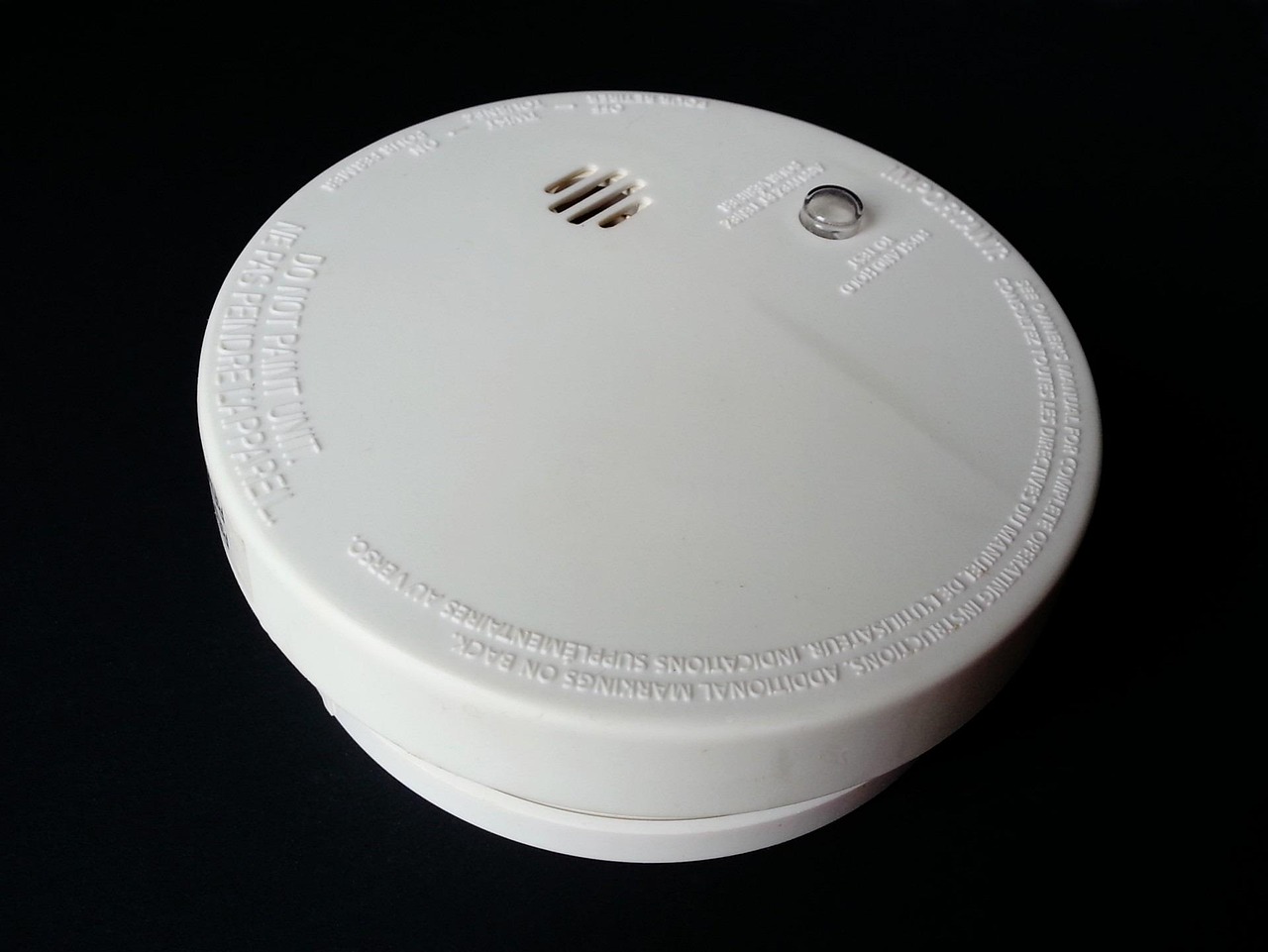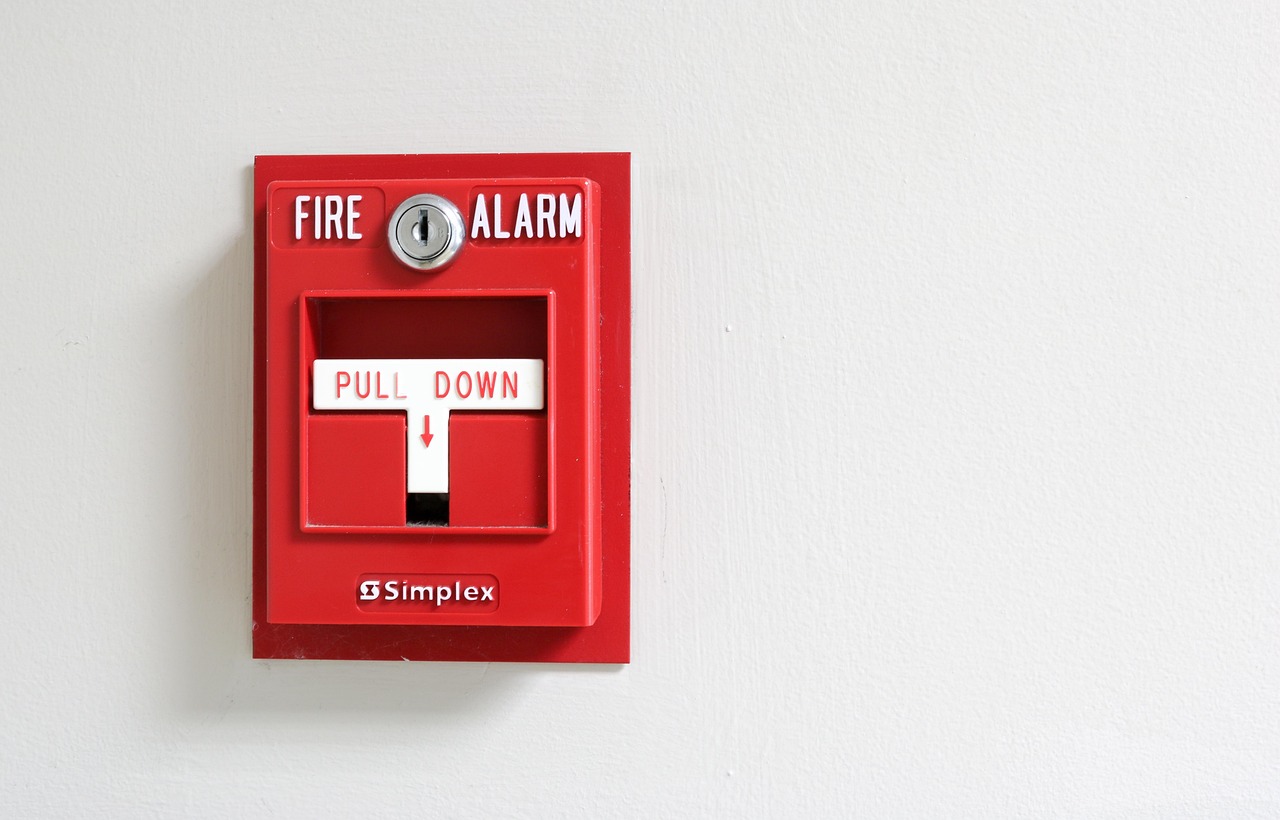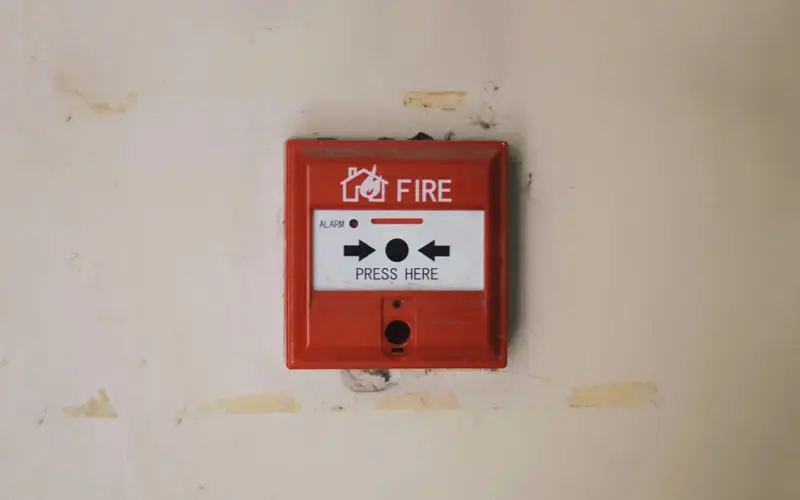People toss around “smoke detector” and “fire alarm” like they’re the same thing, but they’re really not.
Ever look up at your ceiling and wonder what’s actually up there protecting you? It’s worth knowing, especially if you ever have to make a fast decision in a crisis.
A smoke detector is a sensor that detects smoke and sounds an alert in a specific area, while a fire alarm is a comprehensive system that can detect various fire indicators and trigger building-wide responses.
Smoke detectors are usually stand-alone devices with built-in sounders , and fire alarms tie into a central panel that can coordinate a bunch of safety features at once.
Fire safety gear might all look pretty similar, but their jobs can be wildly different.
Fire alarm systems don’t just spot trouble—they kick off actions like calling emergency services, setting off sprinklers, or shutting down elevators and vents.
These aren’t just details; they matter a lot when you’re thinking about how to keep a home or business safe.
What Is A Smoke Detector?

A smoke detector is a device that senses smoke, usually as a warning sign of fire.
These little lifesavers are built to give you a heads-up when smoke is in the air, buying you time to get out before things get out of hand.
They work by keeping tabs on the air with one of two methods. The most common are ionization smoke detectors (which are quick to catch flaming fires) and photoelectric detectors (which are better at catching slow, smoldering fires).
Ionization detectors use a tiny bit of radioactive material to ionize the air in a chamber.
When smoke gets in, it messes with the process and sets off the alarm.
Unlike big fire alarm systems, smoke detectors just do their own thing. They sense smoke and make noise in that one spot.
Some features you’ll find in modern smoke detectors:
- Battery or hardwired power options
- Interconnection capabilities (if one goes off, they all do)
- Test buttons so you can check if they work
- Hush buttons for those accidental kitchen mishaps
- Low battery beeps (which always seem to start at 2 a.m.)
The terms “smoke detector” and “smoke alarm” get swapped around a lot.
Technically, a smoke detector just senses smoke, while a smoke alarm both detects and makes a racket about it.
For real safety, smoke detectors should go on every level of your home, inside bedrooms, and right outside sleeping areas. It’s not overkill—it’s just smart.
What Is A Fire Alarm?

A fire alarm is a full-on safety system that spots fires and lets everyone in the building know there’s trouble.
Unlike single detectors, fire alarms tie together a bunch of parts into one big network.
Fire alarm systems have control panels—the brains of the operation.
They get signals from all over the building and decide when to sound the alarm.
The main job of fire alarm systems isn’t just to spot a problem, but to kick off emergency responses: alarms, calls to the fire department, maybe even turning on sprinklers.
Modern fire alarm systems usually include:
- Control panel: Central brain
- Detection devices: Smoke detectors, heat sensors, manual pull stations
- Notification appliances: Bells, horns, strobe lights
- Power supplies: Main and backup
- Communication systems: To reach emergency services
In commercial buildings, professionally installed alarm systems are a must, thanks to strict codes and regulations.
These setups get checked and maintained regularly to make sure they’ll work when you need them.
Fire alarms are always on, 24/7. They’re made with backups so they’ll keep running even if the power goes out. For homes and businesses, that reliability is a big deal.
Difference Between A Smoke Detector And A Fire Alarm
Smoke detectors and fire alarms both matter for fire safety, but they’re not interchangeable.
A smoke detector’s job is to sense smoke in the air and warn whoever’s nearby.
Fire alarms are bigger systems that do more than just warn people .
They’re hooked up to a central panel and can trigger alerts throughout the whole building.
The National Fire Protection Association (NFPA) spells out the difference in their NFPA 72 code, which a lot of places follow.
Here’s a quick breakdown:
| Feature | Smoke Detector | Fire Alarm |
|---|---|---|
| Purpose | Detects smoke only | Detects multiple hazards (smoke, heat, CO) |
| Coverage | Single area | Entire building/facility |
| Connection | Standalone or interconnected | Connected to central system |
| Response | Local alert | Building-wide alert, may notify authorities |
Smoke detectors give a heads-up to people nearby, so they can get out fast. Most are battery-powered or wired into your home’s electricity.
Fire alarm systems are more involved security setups , with extras like pull stations, sprinklers, and the ability to call for help automatically.
Some smoke detectors can be linked together , so if one goes off, they all do. That’s handy, but still not as robust as a full fire alarm system.
The International Residential Code (IRC) says where smoke detectors should go in homes, but commercial buildings usually need full-on fire alarm systems for proper coverage.
How Each System Works In The Home
In homes, smoke detectors and fire alarms play pretty different roles. Smoke detectors are all about sensing —they catch smoke and make noise, nothing fancy. Fire alarms, though, are more like the whole package.
Smoke Alarms in the Home:
- Usually battery-powered or hardwired
- Work independently in each room
- Blast a loud alarm when smoke is detected
- Need new batteries every 6-12 months (and yes, they’ll beep at you if you forget)
Smoke alarms just sense smoke and yell about it. You’ll find them in bedrooms, hallways, kitchens—anywhere you spend time.
Fire Alarm Systems in the Home:
- Hooked up to the house’s electrical wiring
- Use multiple alarm sensors throughout the place
- Might connect to a monitoring service
- Can set off sprinklers or call the fire department automatically
Fire alarms don’t just warn—they act . You’ll see these in bigger houses or places with complicated layouts.
Maintenance Requirements:
Both need regular checks. Press the test button once a month—just do it, even if you’re sure it’s fine.
Putting in a smoke detector is usually a quick DIY job. Fire alarm installation? Not so much—you’ll probably want a pro, since it’s more involved with wiring and setup.
High-end homes often go for full fire alarm systems , but for smaller places, smoke detectors are often enough.
Which One Do You Need?
What you need depends on your home and what the rules say. For most houses, smoke detectors are usually enough to give you an early warning.
If you live in an apartment, make sure you’ve got smoke detectors in bedrooms and living spaces. They’re cheap, simple to put up, and they work.
Bigger homes? You might want to think about a full fire alarm system.
More sensors, more coverage—it just makes sense if you’ve got lots of rooms or floors.
For businesses, schools, or offices, fire alarm systems are required by law in most places.
These setups include everything from pull stations to sprinklers to alerts that reach everyone at once.
Stuff to consider:
- Your budget
- How big the building is
- Local fire codes
- What kind of wiring you’ve got
- Your family’s needs (kids, grandparents, pets…)
No matter what you pick, having a solid fire escape plan is huge. Everyone in the house should know:
- Main and backup exits
- Where to meet outside
- How to check doors for heat
- When to call 911
Run through your escape plan twice a year. It’s a little thing that could make a big difference if the worst happens.
And don’t forget—fire detection systems need a little love now and then.
Test them and swap the batteries so they’ll be ready when you need them most.
Conclusion
Getting the differences between smoke detectors and smoke alarms straight matters more than people realize—especially when it comes to actually protecting your home.
Sure, they’re both about fire safety, but they don’t quite do the same thing.
Smoke detectors just pick up on smoke—no noise, no warning, just a signal sent back to a main system.
Smoke alarms, on the other hand, handle both jobs in one: they sense smoke and make a racket right there in the room. That’s a pretty important distinction when seconds count.
It’s easy to assume any device will do, but honestly, choosing the wrong one could leave a serious gap in your safety net.
Local rules aren’t just suggestions, either; a lot of places are strict about exactly what you need in a home.
Miss the mark with installation, and you could be looking at fines, headaches with your insurance, or—worst case—a delay in selling your house until you get things up to code. Not exactly something you want to deal with in a pinch.
Maintenance isn’t glamorous, but it’s non-negotiable. Swapping batteries once a year, running a quick test every month, and just biting the bullet and replacing the whole unit every 8-10 years? That’s pretty much the bare minimum if you want these things to actually work when it matters.
Honestly, mixing both types in your fire safety plan isn’t a bad idea. If you’re unsure, maybe just chat with a fire safety pro—they’ve seen it all and can point you in the right direction for your home.
At the end of the day, it’s about giving yourself and your family a real shot if the worst happens.
Early detection isn’t just a buzzword; it’s peace of mind you can’t really put a price on.








